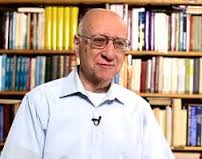American Discontent and Anxiety Stimulates Islamophobia
American Discontent and Anxiety Stimulates Islamophobia

Rabbi Allen S. Maller
Widespread doubt about America’s future has split Americans in half — 49 percent to 49 percent — on whether “America’s best days are ahead of us or behind us.” This anxiety had also produced a major rise in Islamophobia in the U. S.
The slow recovery from the Great Rescission, legalizing gay marriage, and ongoing terrorism in, and coming from the Middle East, make millions of American’s fearful for America’s future. Some of these fearful people have fallen for demagogues who try to scapegoat Muslims and Gays as hostile to American values.
According to the Public Religion Research Institute’s annual American Values Survey (of 2,695 U.S. adults), released Tuesday (Nov. 17) a majority of Americans (56 percent, including majorities in all the major Christian traditions) say the values of Islam are at odds with American values.
That’s a significant rise of nine points in just the last four years since 2011, when Americans were evenly split, with 47 percent saying Islamic values were incompatible while 48 percent disagreed.
Three large groups of Americans had a major increase in Islamophobia; and three smaller groups only had a small rise, or no raise at all.
The three groups of Americans having large numbers of people agreeing with the statement that the values of Islam are at odds with American values are:
white evangelical Protestants (up 14 points to 73 percent from 59 percent in 2011);
white mainline Protestants (up 16 points to 63 percent from 47 percent);
and Catholics (up 20 points to 61 percent from 41 percent).
The three groups that did not show a significant rise in Islamophobia are all American minorities: only 55 percent of black Protestants said Islamic values were incompatible with American values (up only 4 points from 51 percent) ;
and among Jews and “nones,” people who claim no religious label, there was no rise at all, because statistically speaking a one point difference (to 42 percent from 41 percent) is within the surveys margin of error.
Since Jews are non-Christians, and 95 percent of “nones” are ex-Christians; both groups are usually closer to each other than either is to Christian public values.
Many people are surprised to learn that Jews are much less Islamophobic than Christians even after eight decades of conflict between Palestinians and Israelis.
Most Rabbis would explain the low rate of Islamophobia among Jews by pointing out that Judaism is more compatible with Islam because both religions reject the concept of Jesus as the Son of God, and the doctrine of original sin.
Most Jews think of Jesus as a Rabbi; who was a mixture of a “believe in the power of prayer” Hassidic Rabbi, and a “don’t make religion hard” Reform Rabbi.
Other Jews also think of Jesus as a prophet, and some Jews even think of Jesus as a Messianic figure, who tried to liberate and redeem the Jewish People, but unfortunately was unsuccessful.
Judaism however, totally rejects the idea that Jesus was a Divine Messiah, the son of God, and a part of a Divine trinity. This is also the view of Islam.
Jesus refers to himself dozens of times as the “son of man” a messianic figure term. Paul, the creator of Christianity, who never met Jesus, never uses this term. Most of the non-Jews who convert to Judaism [about 3-5,000 a year] do so because, while they believe in God, they cannot believe that God has a son.
Also, all rabbis know that during the ten plus centuries of the Medieval Age, Jews were persecuted much less in Muslin countries than they were in Christian countries.
Rabbi Maller’s web site is: rabbimaller.com
